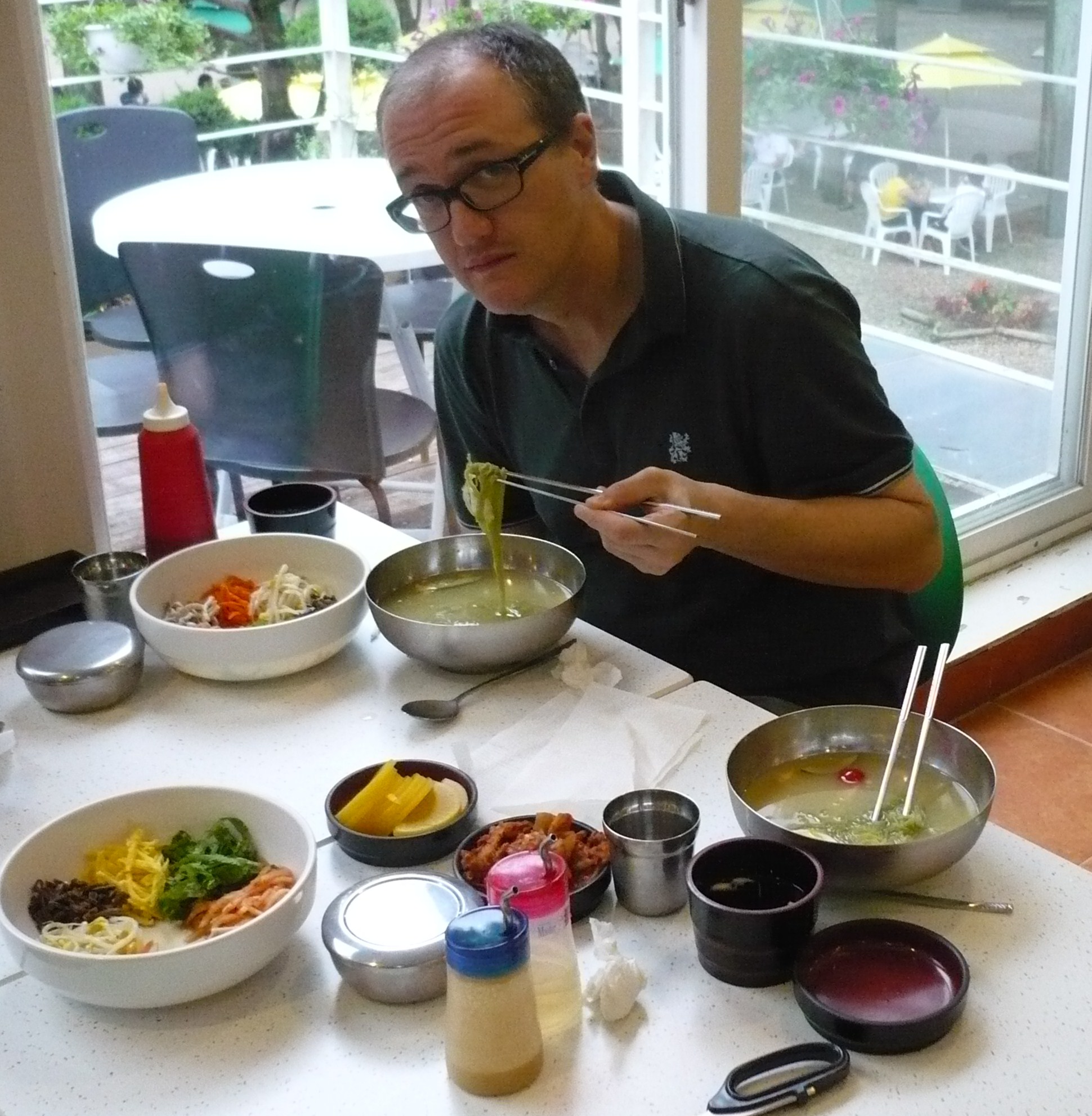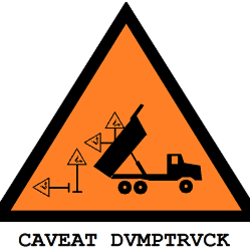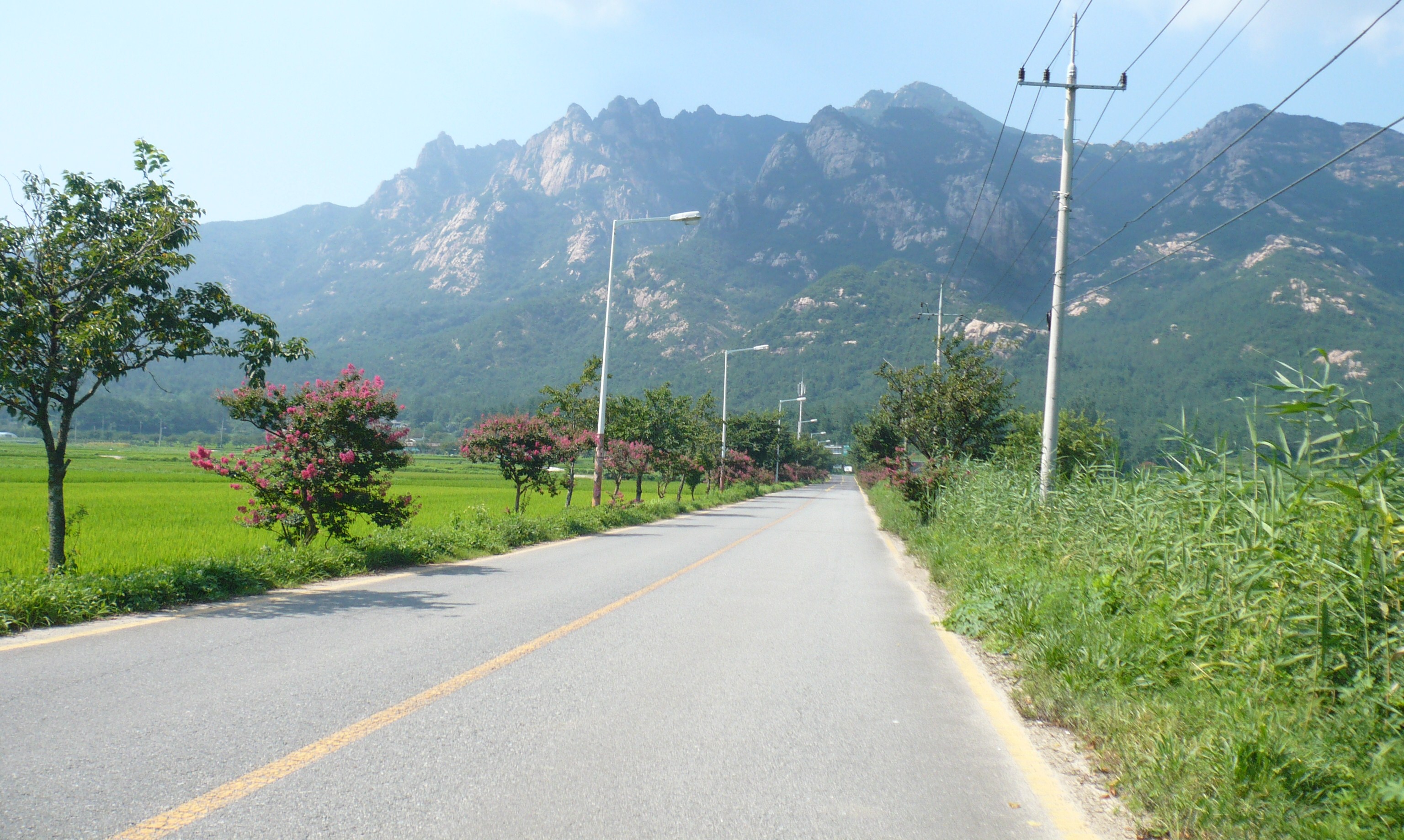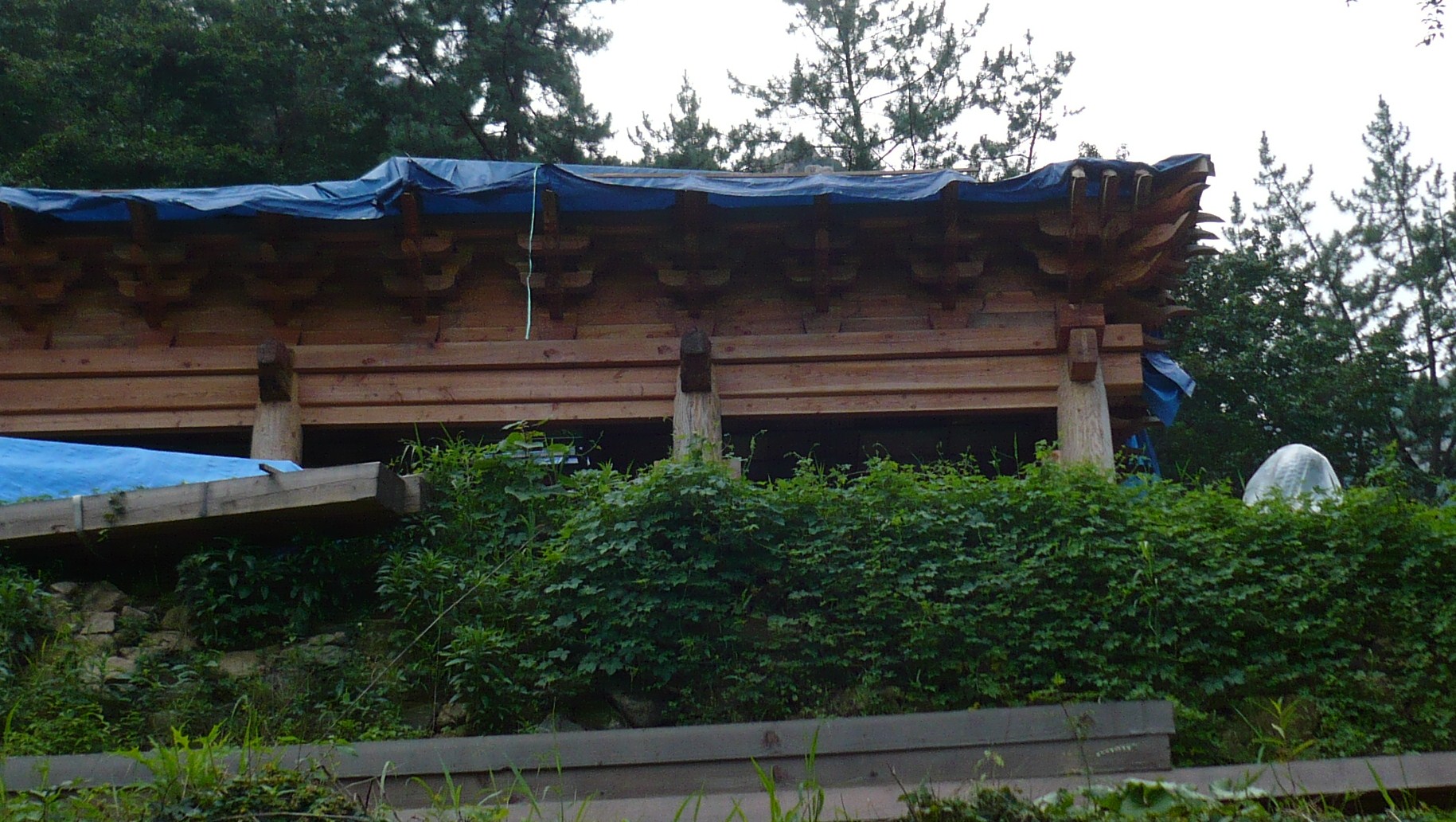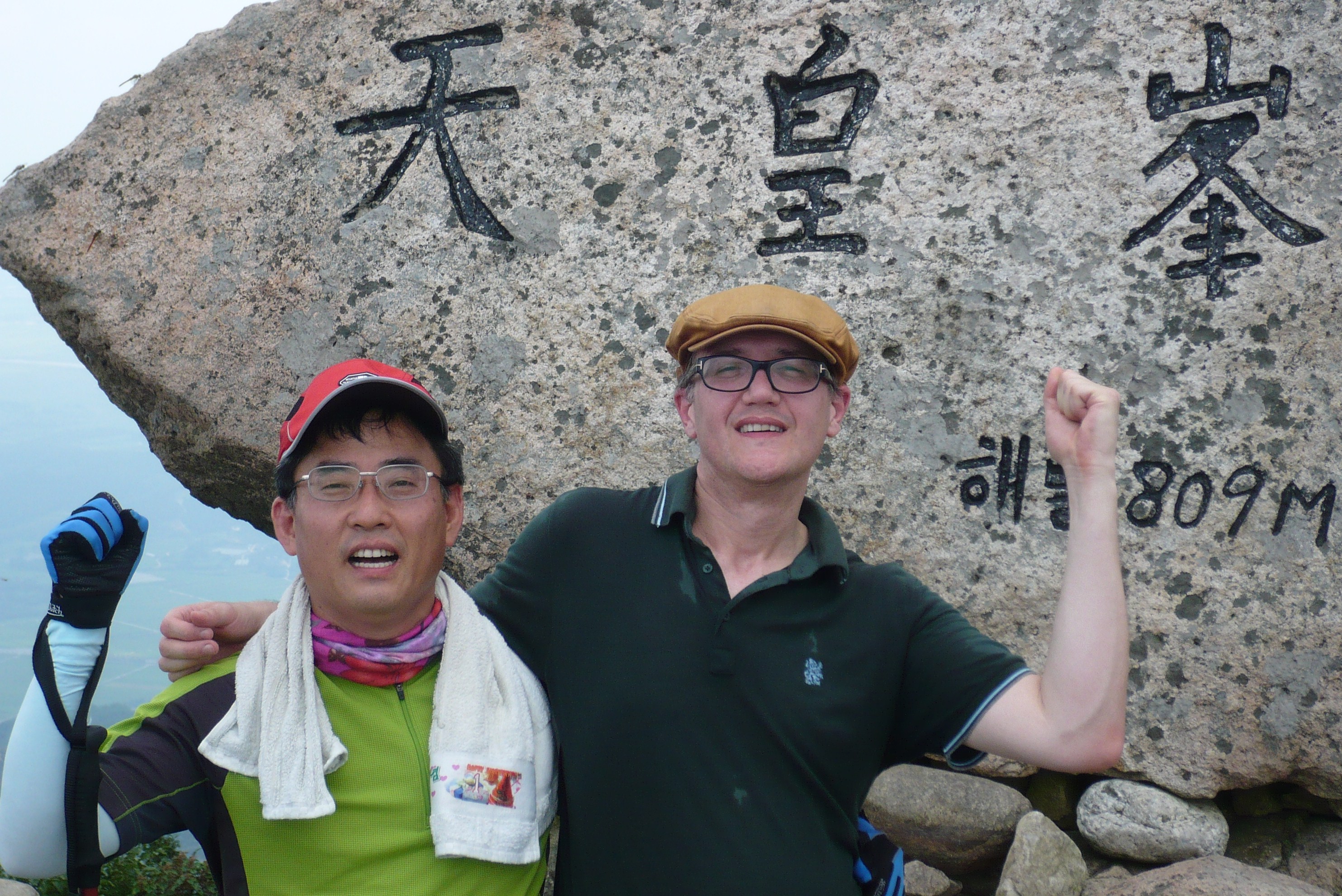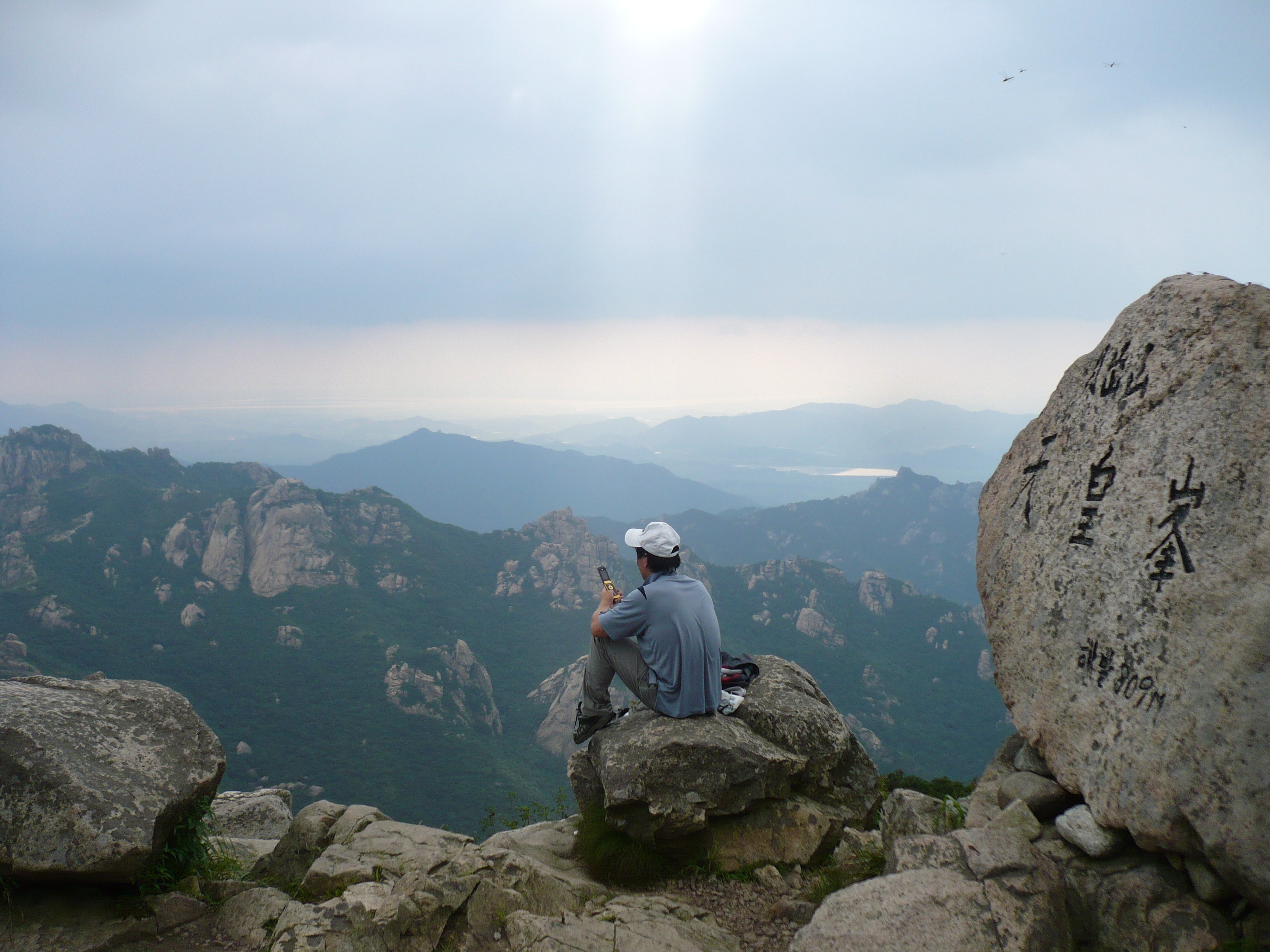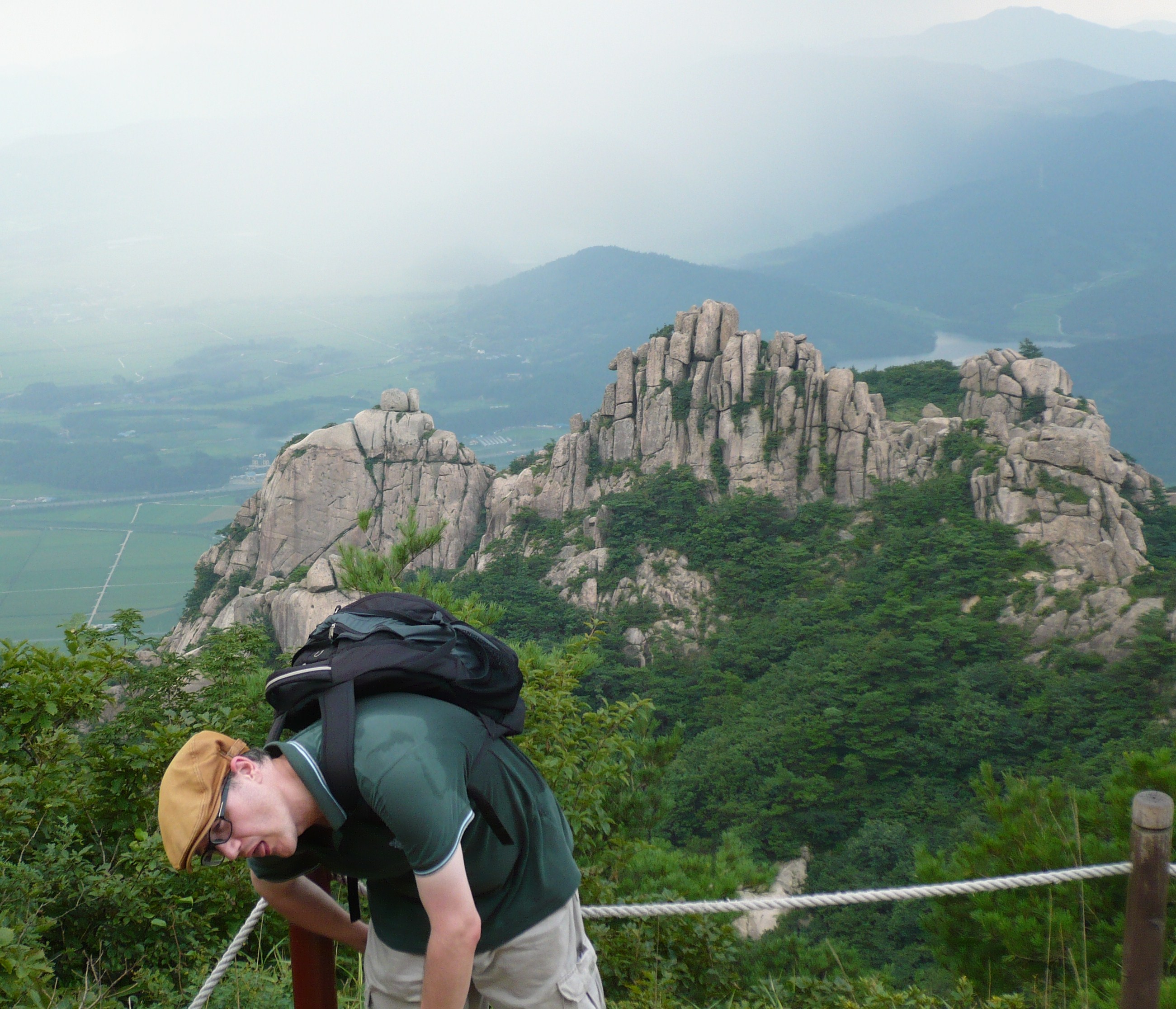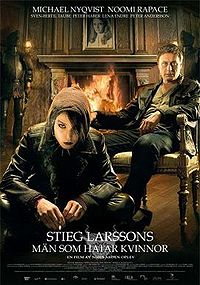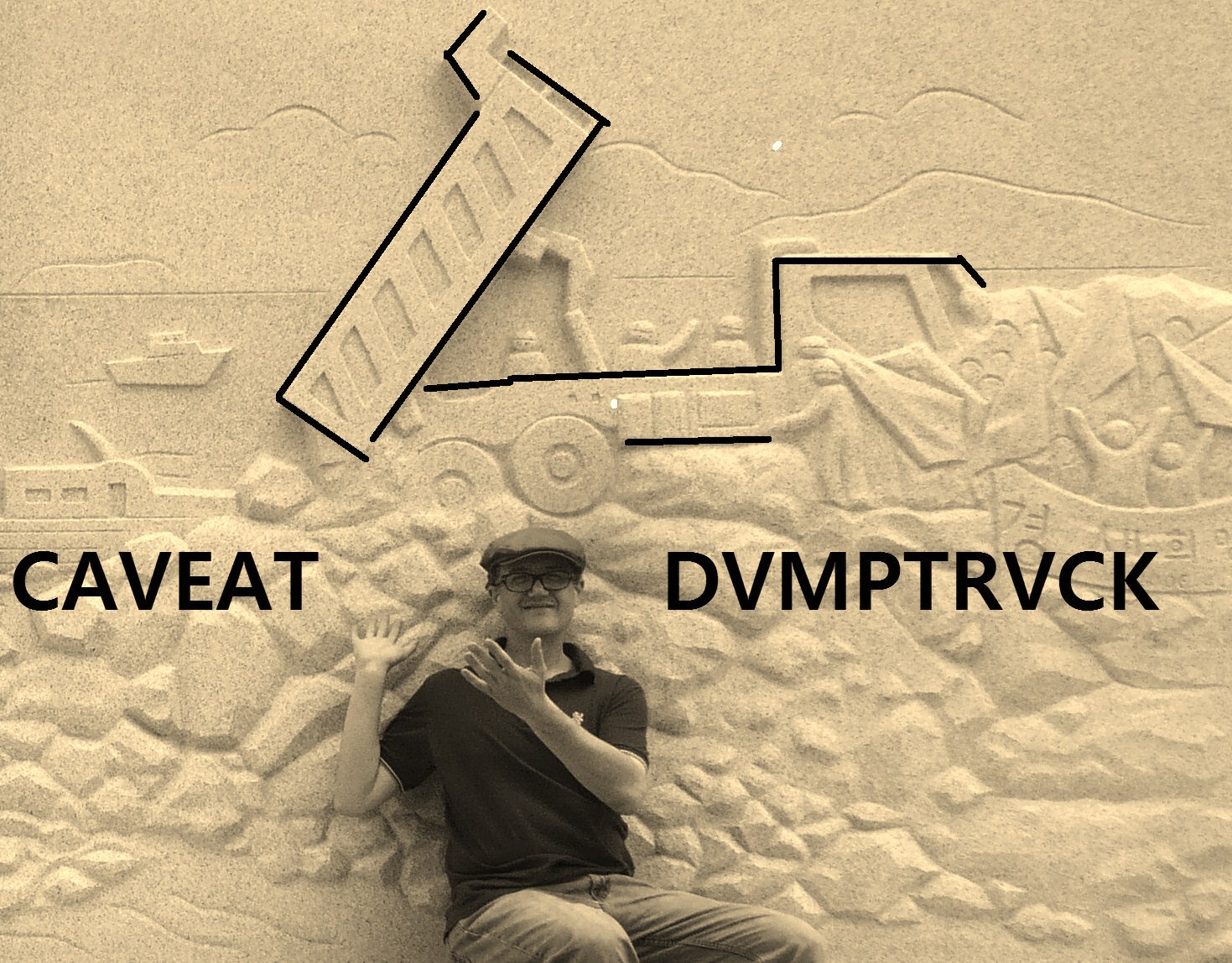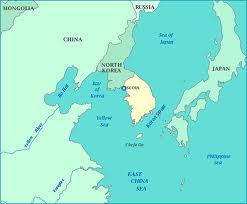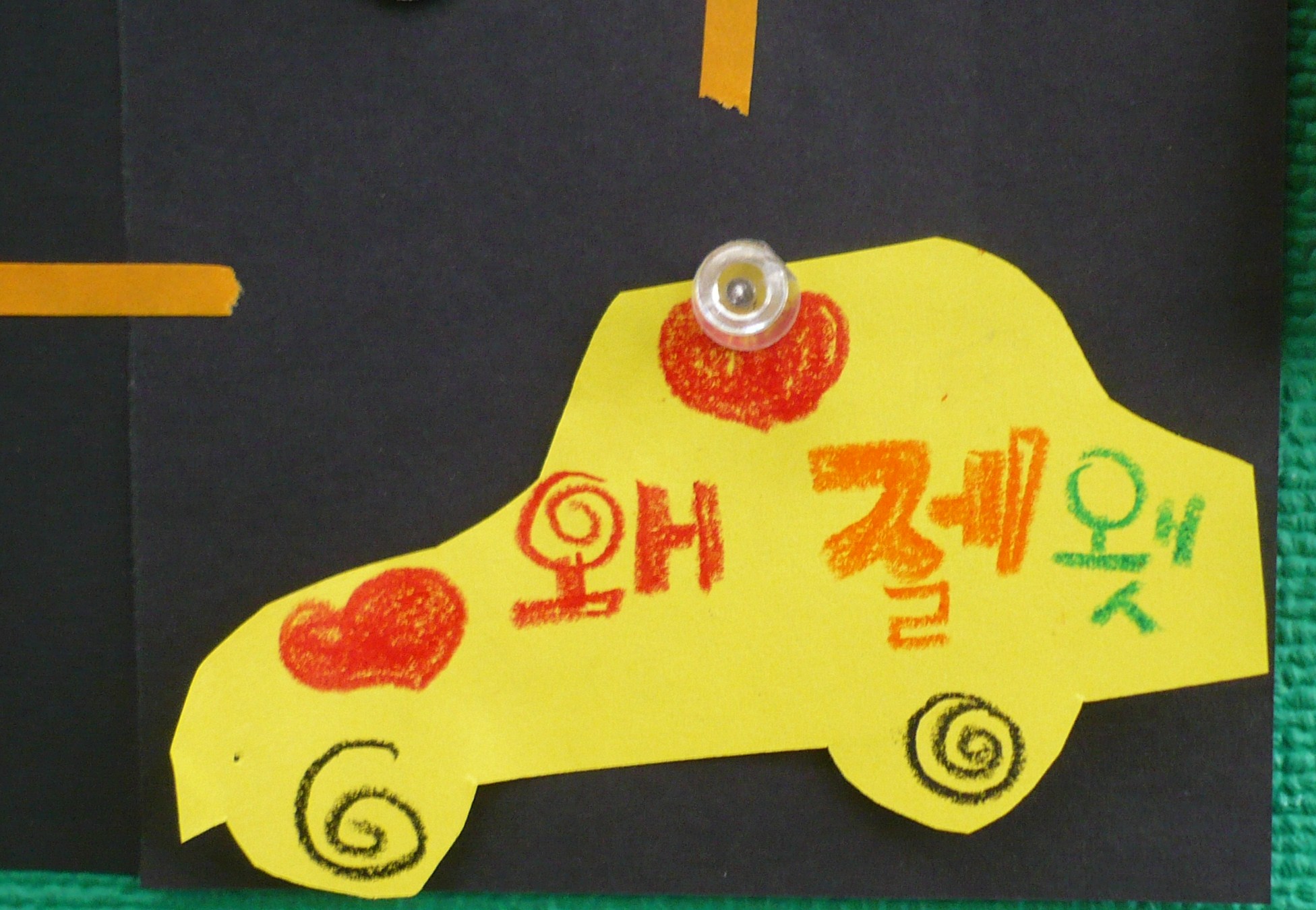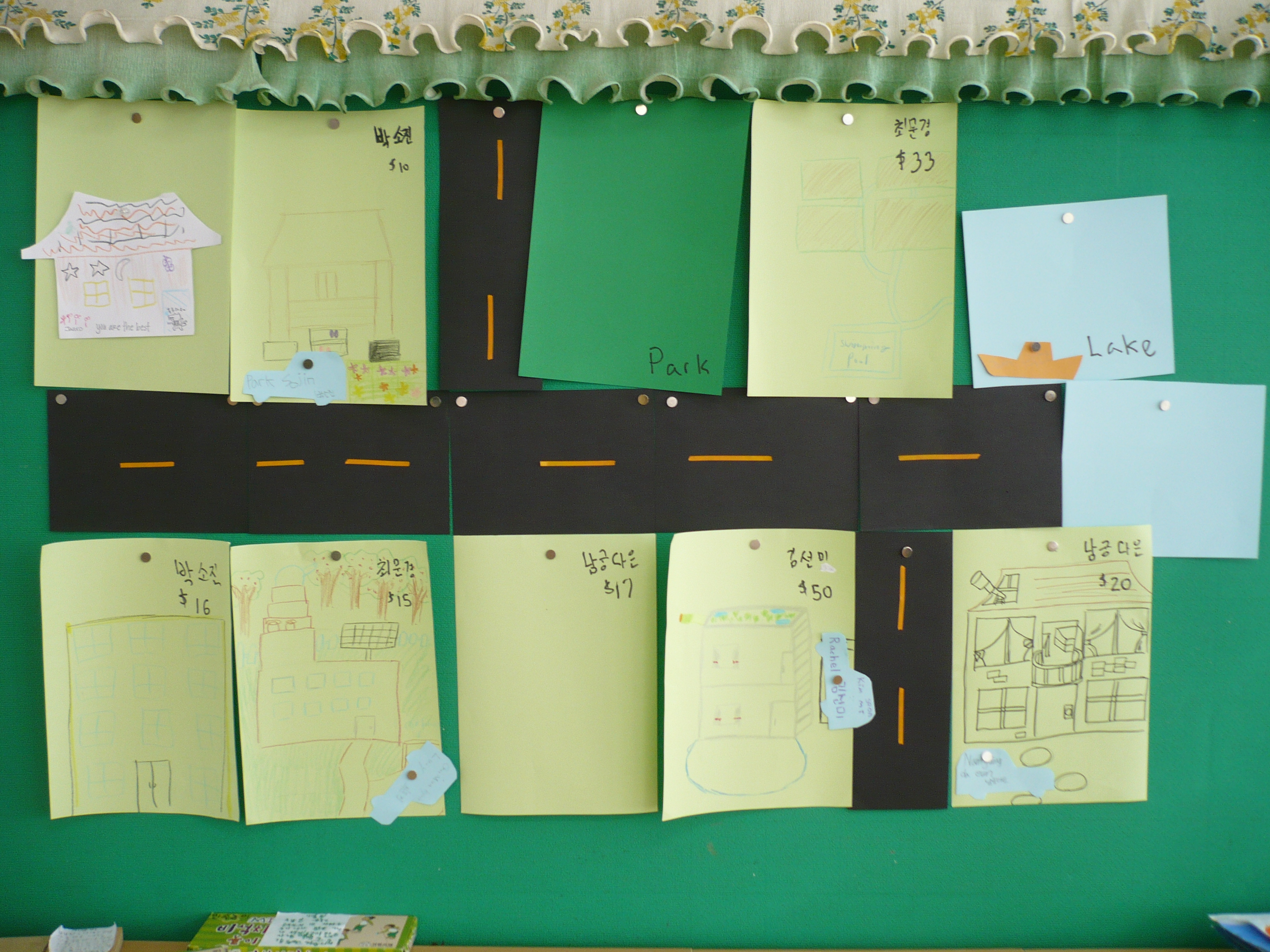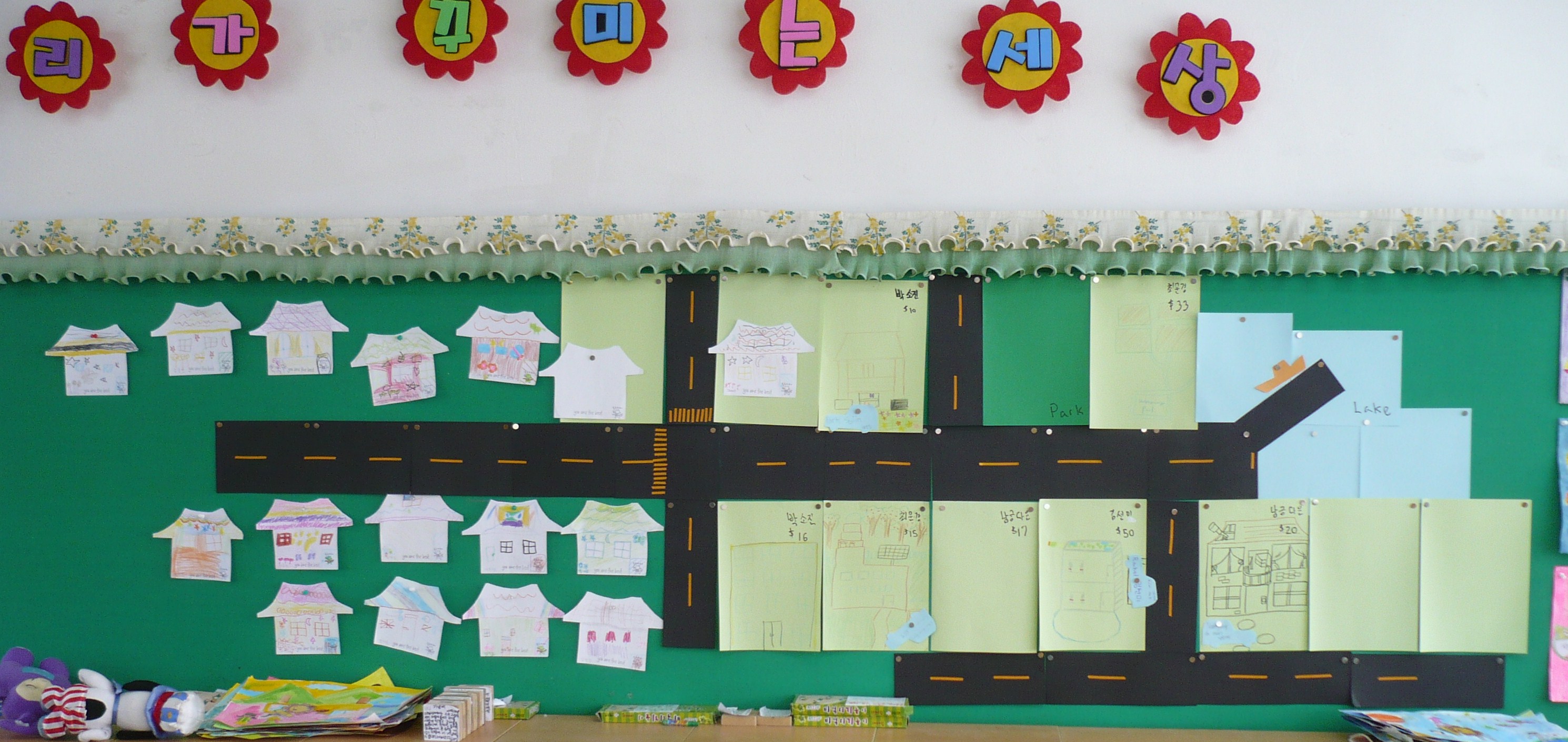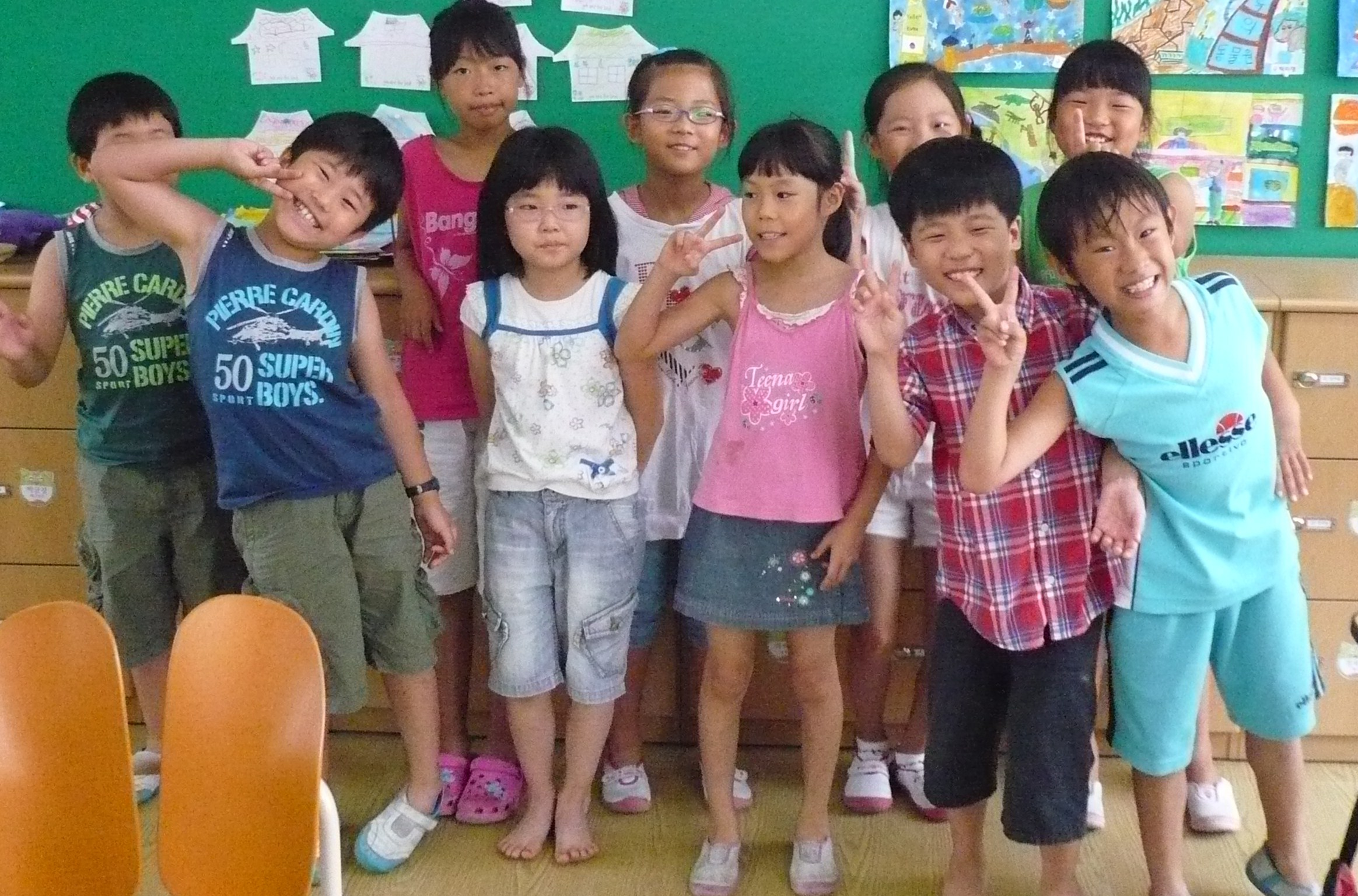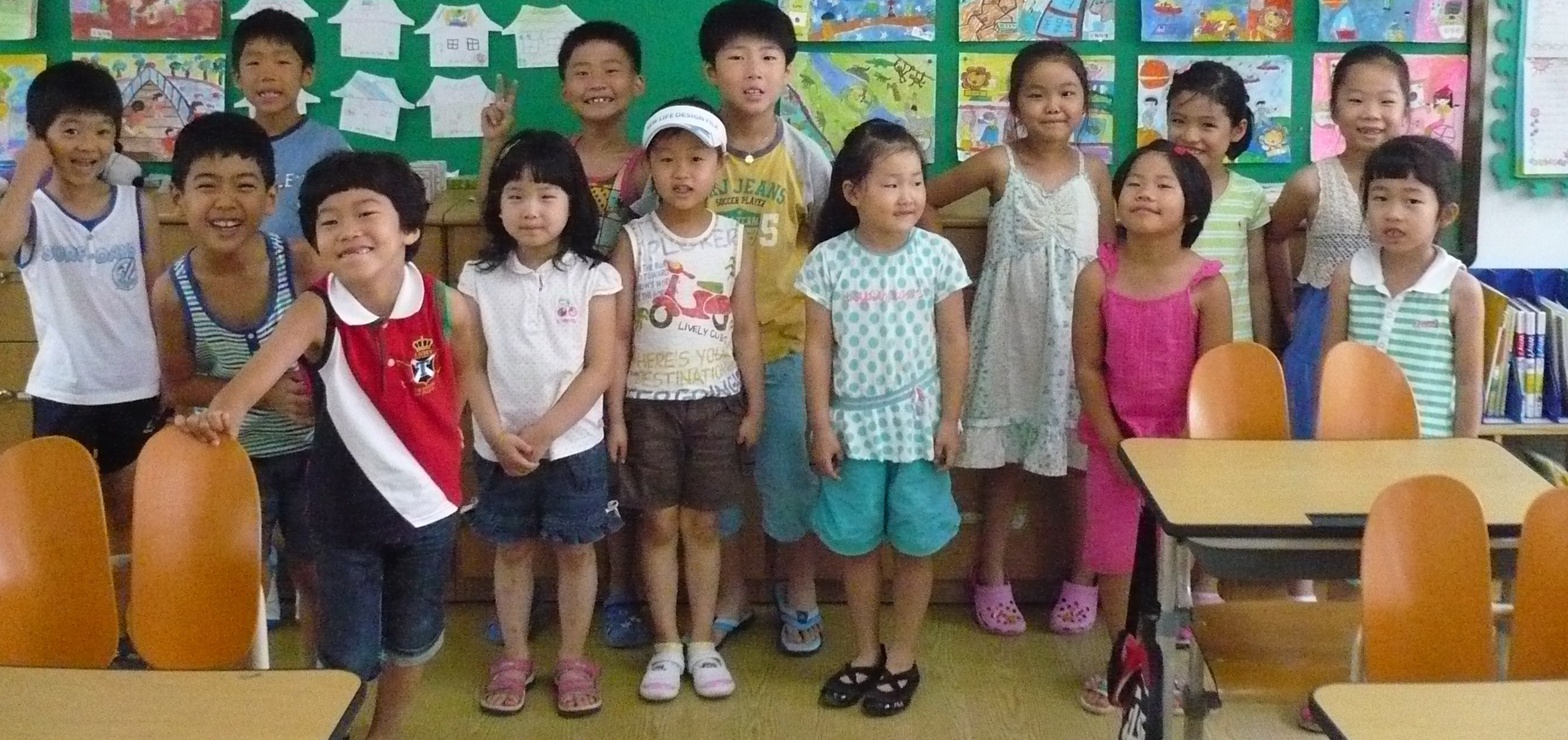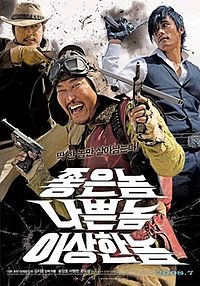Yesterday I took a day trip. It followed the pattern of many day trips I’ve taken with Koreans – a little bit random, with an initial plan but a lot of ad hoc changes, too. A bit like many things. Unlike in work situations, however, this kind of thing doesn’t bother me in the least. It’s a good way to do things.
I have a coworker, Haewon, who is Gyopo. “Gyopo” is what Koreans call fellow Koreans who are born or have lived abroad and pertain at least as much to that foreign culture as to Korean culture. Haewon grew up in Houston, Texas, and she is not a full-time teacher – she’s kind of bottom-of-the-totem pole, because she’s young – university age – and I don’t think she holds a Korean teaching certification. She’s kind of just a teaching assistant or part-timer. Anyway, being the only truly bilingual person in the school (and possibly the only truly bilingual person in the entire town of Hongnong), she often gets stuck with “translator duty,” which I think must be very hard on her.
At first, I didn’t feel that comfortable around her – she seemed too serious, and kind of gloomy. But I’ve come to think highly of her. She’s quite intelligent, although she hides it for the most part, and she’s got a sort of understated, wry sense of humor that shows up at odd moments. Friday, she told me she had been invited by one of her adult students (she teaches a night class at the nuclear power plant) to go drive down and look at Boseong, which is where the famous green tea plantations are, at the other end of Jeollanam Province. She conveyed her student’s invitation that I could come along too.
The adult student was Mr Kim, who is a nuclear engineer who works at the power plant as a senior reactor operator. Interesting stuff. He’s my age. He’s trying desperately to improve his English (because his next promotion depends on a certain minimum level of proficiency – it’s tied to recent contract the Korean Nuclear Power company has finagled to build reactors for the United Arab Emirates), hence the fact of his taking the night class, with Haewon, and also his invitation through her to any “foreigners” she might know to spend a Saturday hanging out and touring around. He’s a nice guy, and generous.
We didn’t follow the plan of going straight to Boseong. We ended up going the opposite direction, at first, because he wanted to go see this giant causeway (it’s a bit like the giant polders the Dutch have built to increase the size of their country, in engineering terms). First, though, we stopped at a ancient Buddhist temple called Seonsun, which is one of the oldest in Korea, having been established in 577.
The causeway, which stretches south of Kunsan in a great arc jutting into the Yellow Sea, is called Saemangeum, and basically, as I hinted, the Koreans appear to be taking a cue from the Dutch and are attempting to build more, brand new South Korea, from scratch. One dumps dirt and rocks and cement into the ocean, fills things in and drains water, adds roads, trees, buildings, harbors, and viola, more Korea!
The project is still in early stages, but the plan is humongous, vast – and although it’s not terribly photogenic, especially in the sticky summer fog, I tried to take some pictures. Then we drove to Boseong, after stopping at a fish market in Kunsan and eating some dried, smoked octopus tentacle, and then nearly drowning in a rainstorm while tailing a dumptruck.
Here are some pictures. I really liked the dumptruck bas-relief attached to the monument at Saemangeum – it would maybe make a good logo for my blog.
Here is a flower I saw at the side of the road, while walking to meet Haewon and Mr Kim at 7 in the morning.

Peering into one of the temple buildings, at Seonsunsa.
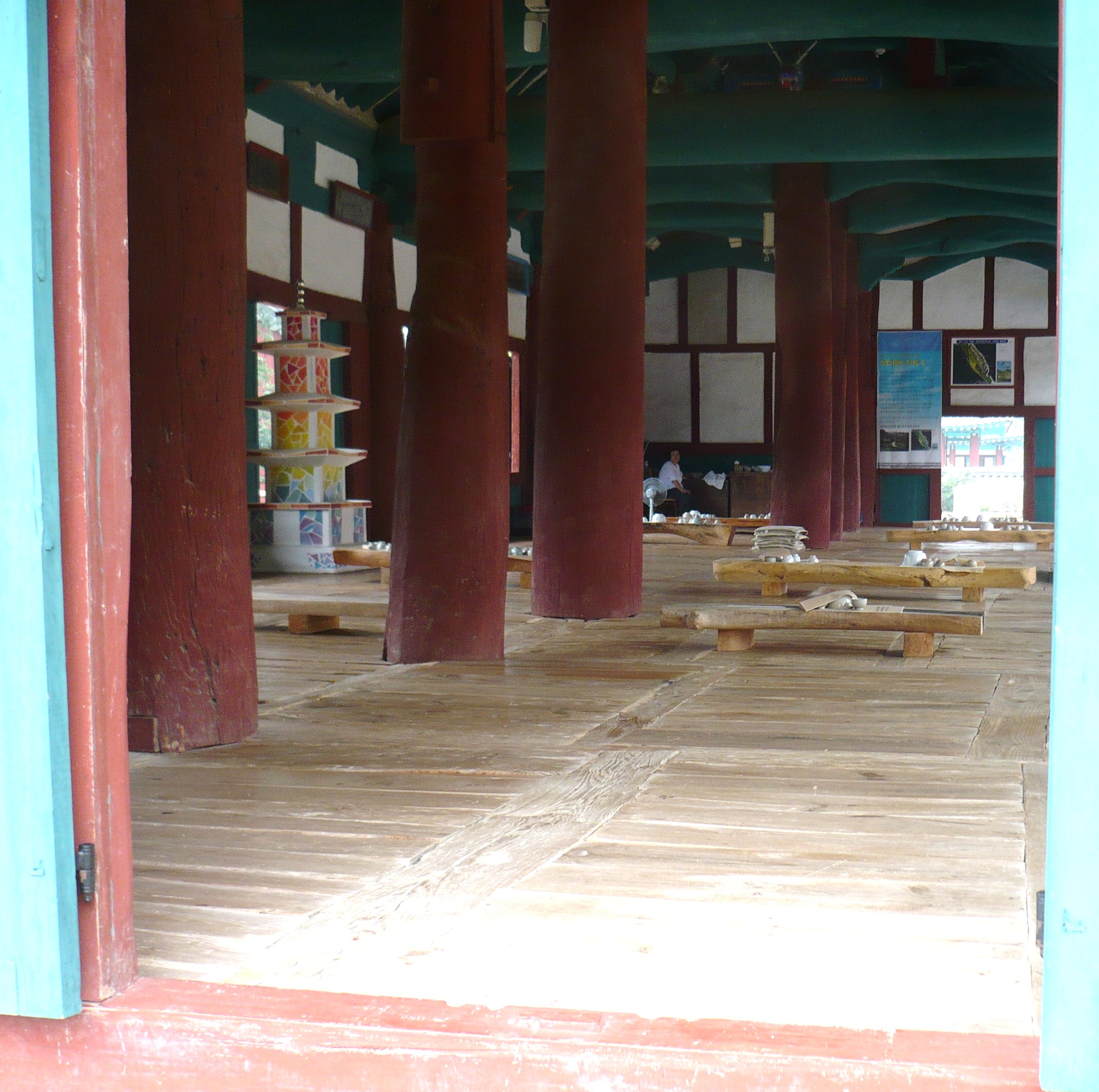
Me and the dumptruck.
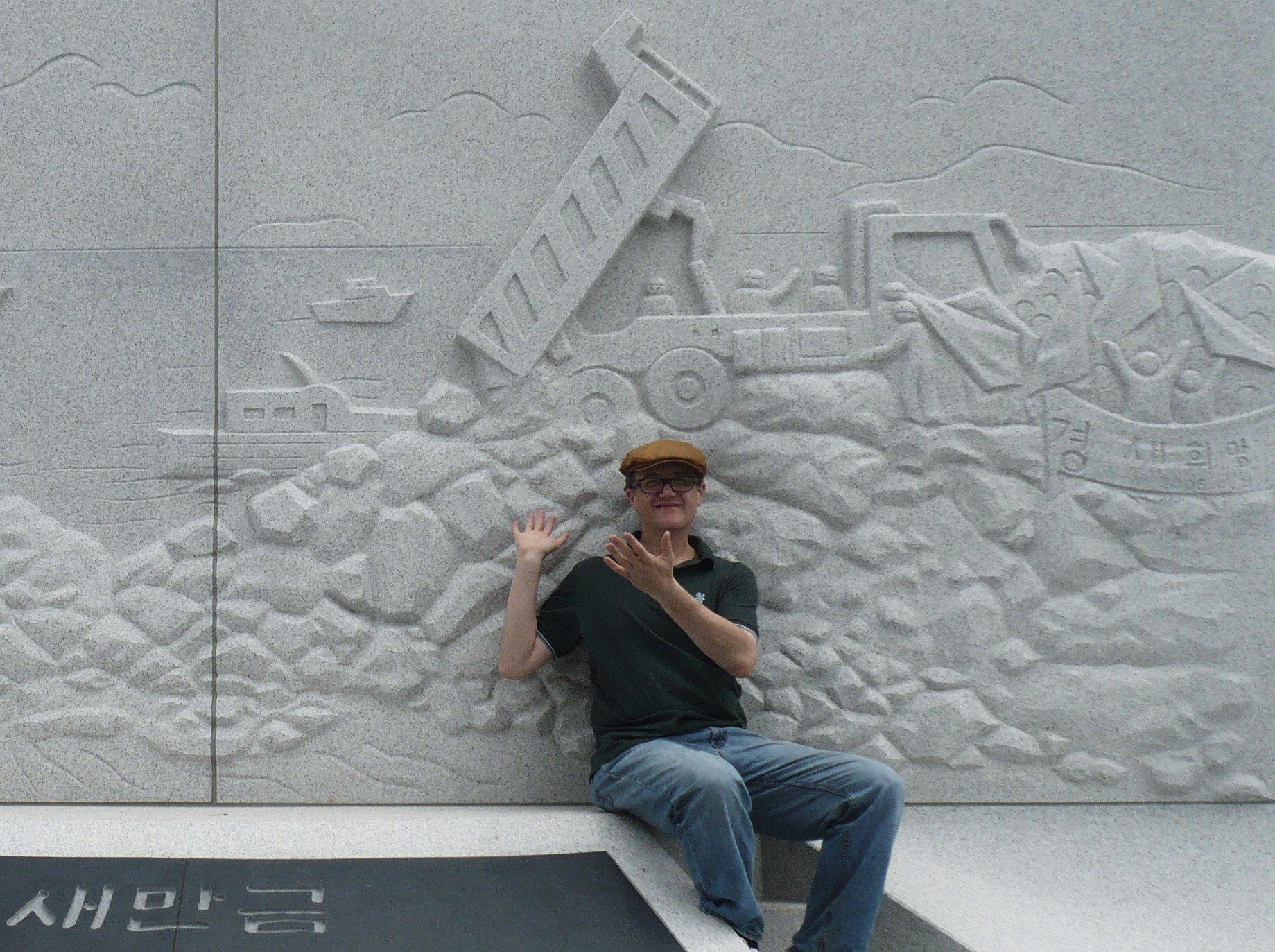
Me and Mr Kim.
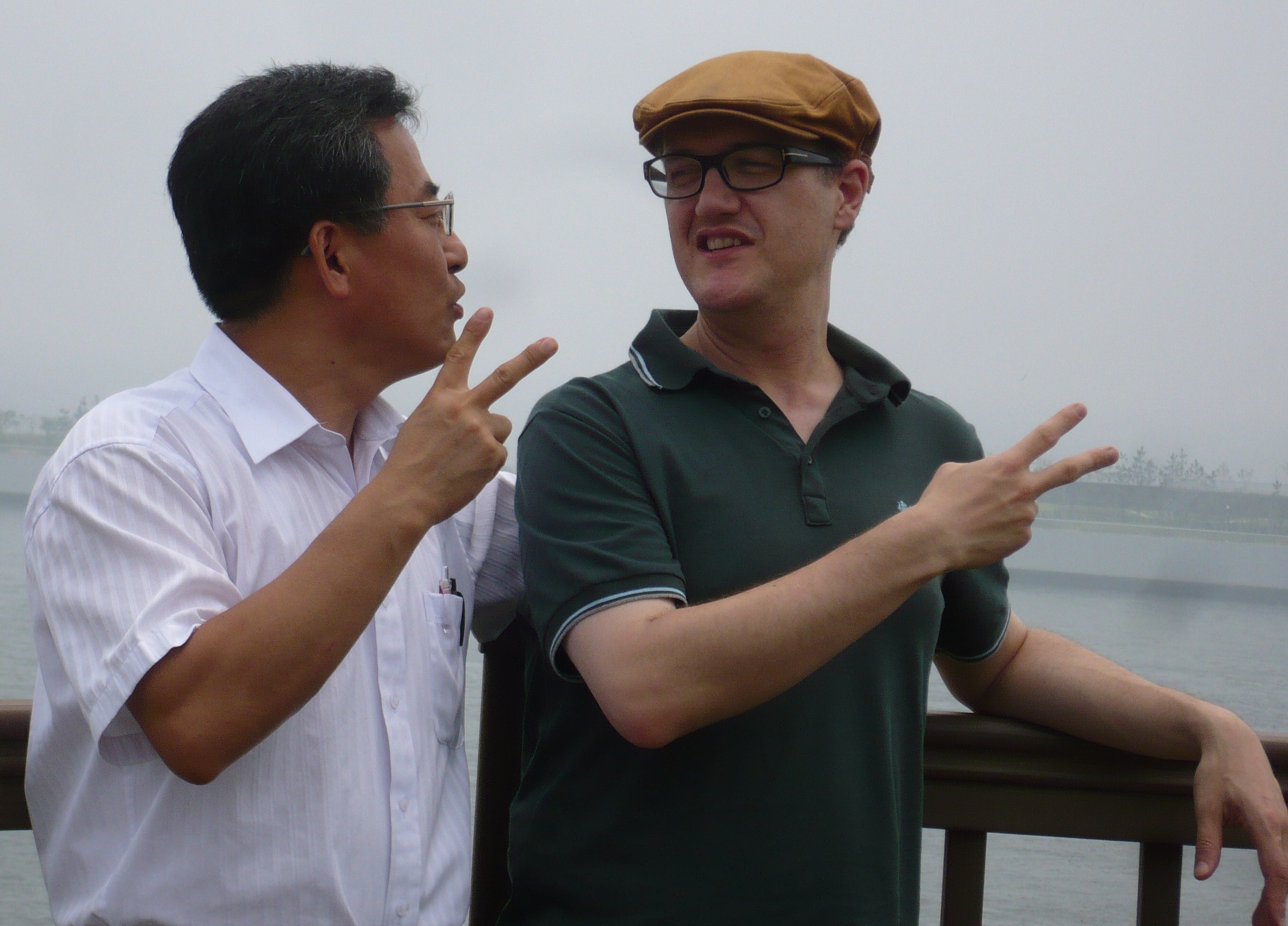
The giant, super-humongous tidal flood gates, near the midpoint of the 50 km. long dike that we drove along.

A stream in the woods near the tea fields.

Peering at tea from under cedars, misty day.

Tea fields.

More tea.

Me, candidly, eating naengmyeon.
